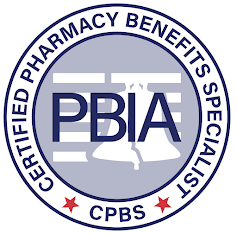Walgreens will pay $106.8 million to settle claims of fraudulently billing for undispensed prescriptions and other notes from around the interweb:
- Walgreens paying $106.8 million to settle US prescription billing fraud charges. Walgreens Boots Alliance (WBA.O), agreed to pay $106.8 million to settle charges it fraudulently billed the U.S. government for prescriptions that were never dispensed, the Department of Justice said on Friday. The Justice Department said Walgreens violated the federal False Claims Act between 2009 and 2020 by submitting payment claims to Medicare, Medicaid, and other healthcare programs for prescriptions it processed but which were never picked up. This caused the pharmacy chain to receive tens of millions of dollars for prescriptions it never provided to patients, the department said. “Federal health care programs provide critical health care services to millions of Americans,” said Brian Boynton, head of the Justice Department’s civil division. “We will hold accountable those who abuse these programs by knowingly billing for goods or services they did not provide.”
- Elevance intensifies Ozempic crackdown. Anthem Blue Cross Blue Shield is requesting payments from some providers it alleges falsified patients’ medical records when prescribing Ozempic, Bloomberg reported Sept. 12. A spokesperson for Elevance Health, which owns Anthem BCBS, told Bloomberg it contacted a small number of providers about repayments for Ozempic prescribed to their patients. In some cases, the amount of repayment requested was more than $1 million. Representatives for Elevance told Bloomberg that Anthem BCBS only covers Ozempic for patients with Type 2 diabetes. The drug is not approved by the FDA for weight loss but is often prescribed off-label for that purpose. Ozempic is a prescription medication used to improve blood sugar control in adults with type 2 diabetes. It’s a once-weekly injection that also helps with weight loss by reducing appetite. Its active ingredient is semaglutide, a GLP-1 receptor agonist.
- Copay Adjustment Chess Match: What Will Payers Do Next?. The primary reason that payers created copay adjustment programs lies within the very nature of their business, namely that insuring patients means taking on the risk of patients’ lives for the pharmaceutical benefit. Additionally, the payers’ clients—employers—demand that payers and pharmacy benefit managers (PBMs) keep drug costs under control since the cost of providing healthcare to their employees remains high. Over the years, formularies, exclusions, and prior authorizations have been created to support this cost control, but using the accumulator technique, in which the patient’s annual out-of-pocket (OOP) maximum is affected by taking off the manufacturer’s contribution, is a newer approach. It all stems from the same reasoning—payers are seeking ways to control costs to benefit their bottom line, while employers are seeking ways to control the costs of providing healthcare to their employees.
- 3 Trends Reshaping Pharmacy Benefits Management. We offer a comprehensive analysis of three critical areas transforming the sector: GLP-1 medications, biosimilars, and PBM transparency. Our analysis covers diabetes and weight loss management trends, the impact of biosimilars on the market, and the complexities of PBM rebate structures. The prevalence of diabetes in the United States has reached alarming levels, with approximately 12% of adults diagnosed with the condition. Even more concerning is the additional 40% of the population classified as pre-diabetic, underscoring the potential for a significant increase in diabetes diagnoses in the near future. This epidemiological landscape has profound implications for employer-sponsored health plans, particularly in relation to the coverage of GLP-1 (Glucagon-Like Peptide-1) receptor agonists.
